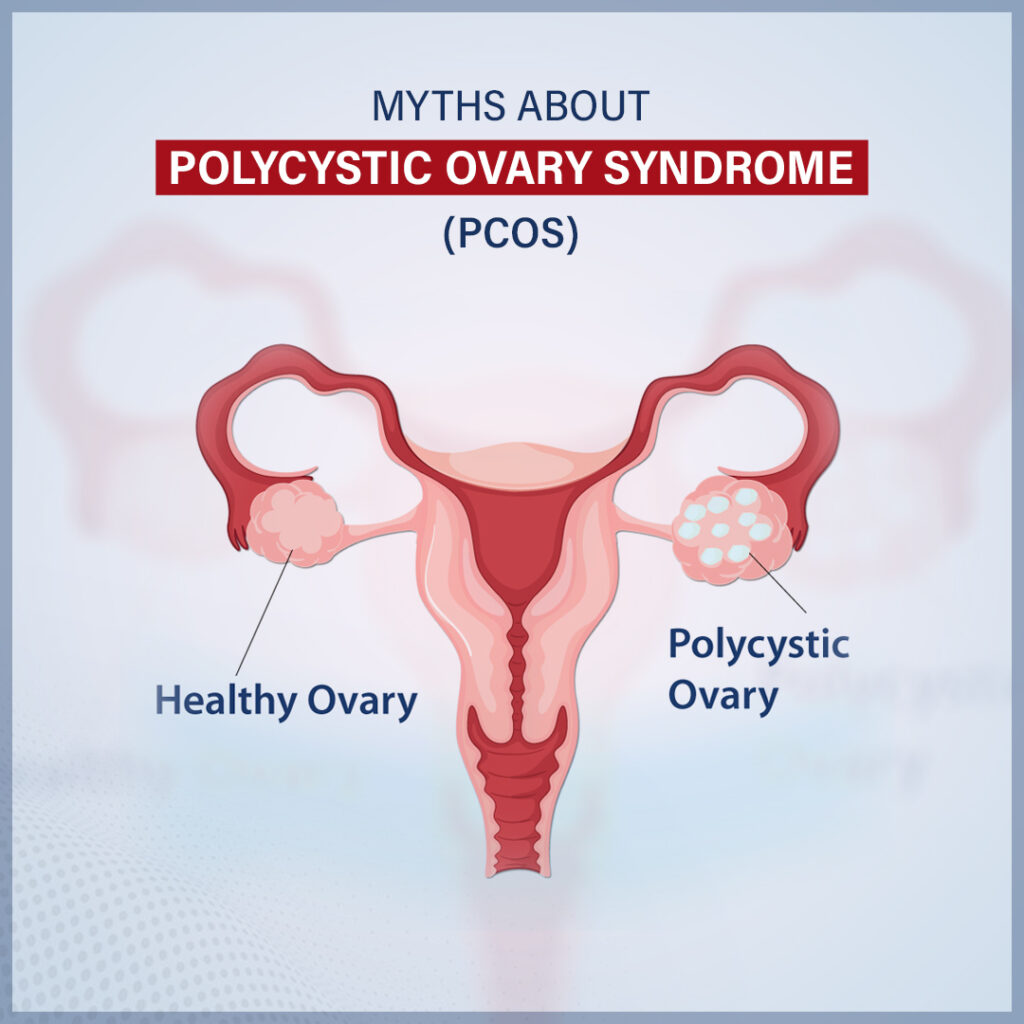PCOS, or polycystic ovarian syndrome, is caused due to hormonal imbalance that affects one out of every ten women of reproductive age. While PCOS can strike at any age after puberty, most women are diagnosed in their 20s or 30s, having difficulty conceiving.
PCOS, like many other illnesses, is surrounded by a lot of disinformation. We’ll dispel four popular PCOS myths:
Myth 1: If you have PCOS, your ovaries are polycystic:
While the name suggests otherwise, it’s a misnomer. Many women have cysts but don’t have PCOS, whereas others don’t have cysts but do have PCOS. The following are some of the most common symptoms:
- Irregular periods or no periods
- Extra hair growth on the face or body, acne, or thinning hair on the head due to high testosterone Weight gain or trouble decreasing weight
Myth No. 2: PCOS Affects Only Overweight Women:
While many women with PCOS are overweight or obese, it can also affect women who are healthy or have a low body mass index. Slim women with PCOS can easily be misdiagnosed if the disease is assumed to affect overweight women mainly. Obese women, on the other hand, are more prone to be misdiagnosed with PCOS when their symptoms are due to some other condition.
Myth #3: Losing weight will cure PCOS:
Unfortunately, we cannot cure PCOS but can manage symptoms. While diet, exercise, and weight loss will not cure PCOS, they may aid in lowering blood sugar levels, improving insulin sensitivity, and regulating hormones. Even a 10% weight decrease can help with insulin sensitivity and ovulation.
Myth #4: If you have PCOS, you can’t get pregnant:
One of the most frequent and curable reasons for infertility in women is PCOS. PCOS interferes with ovulation, making it more difficult to conceive. Working with a fertility specialist, on the other hand, can improve your chances of becoming pregnant, whether naturally or after fertility treatments.
When treating PCOS, your gynecologist or fertility specialist should use a multi-disciplinary approach like that at Aster Speciality Clinic.

